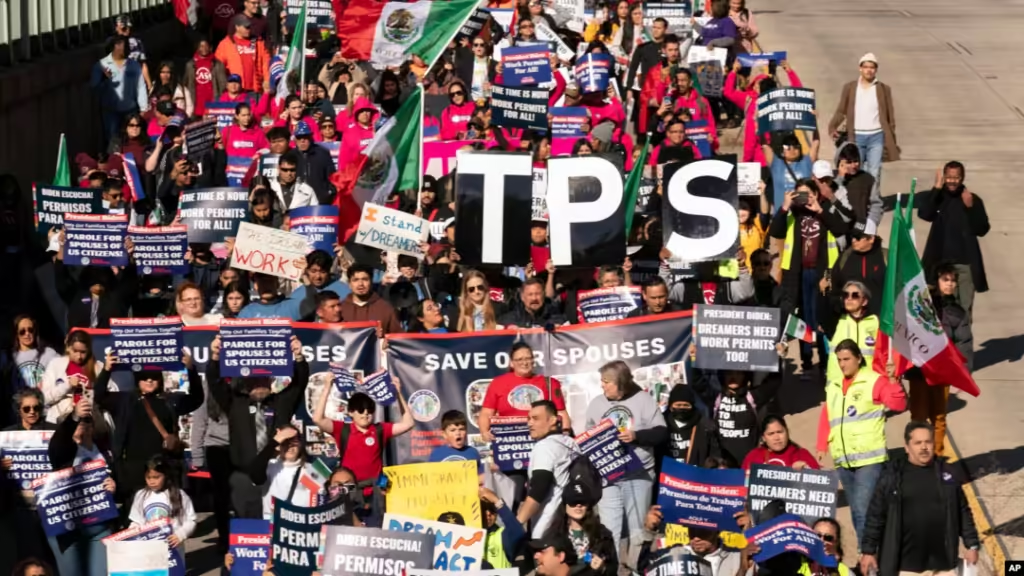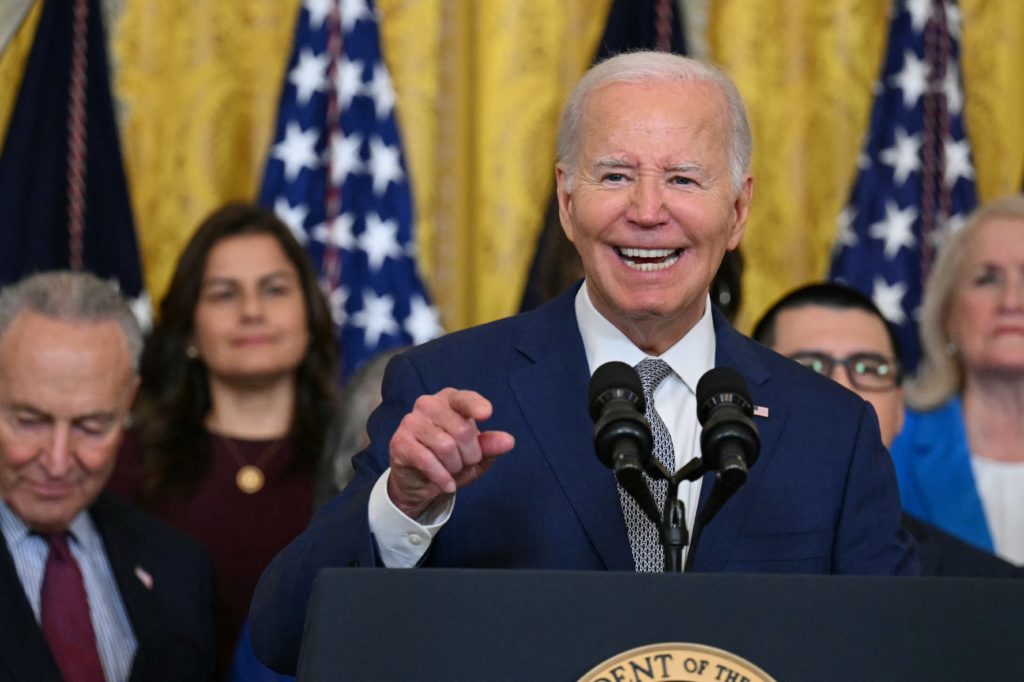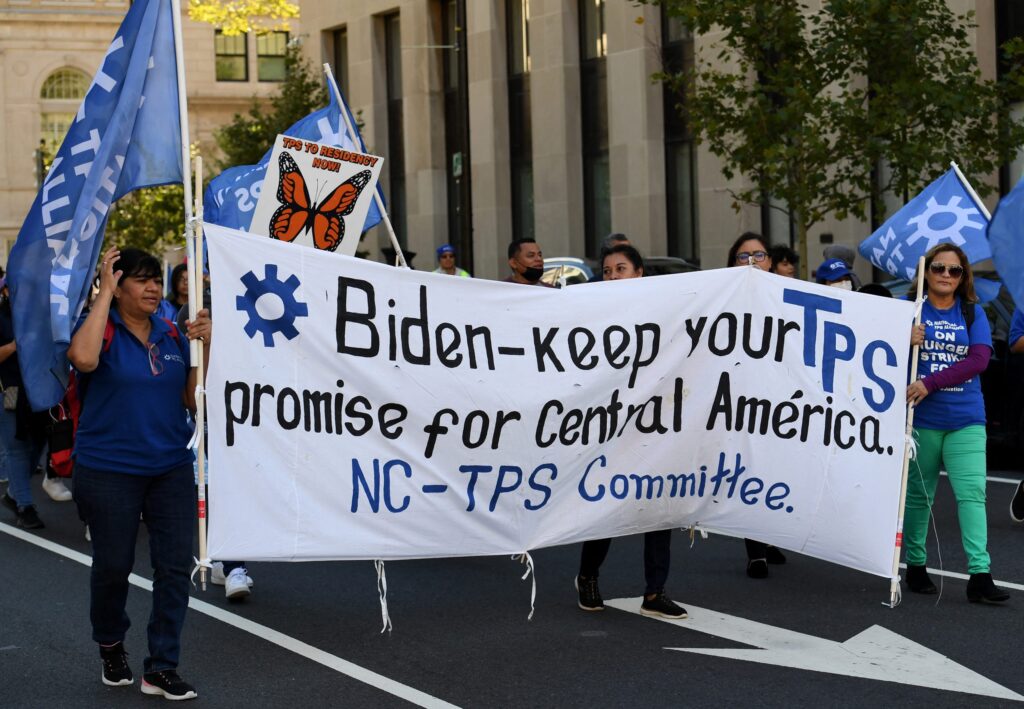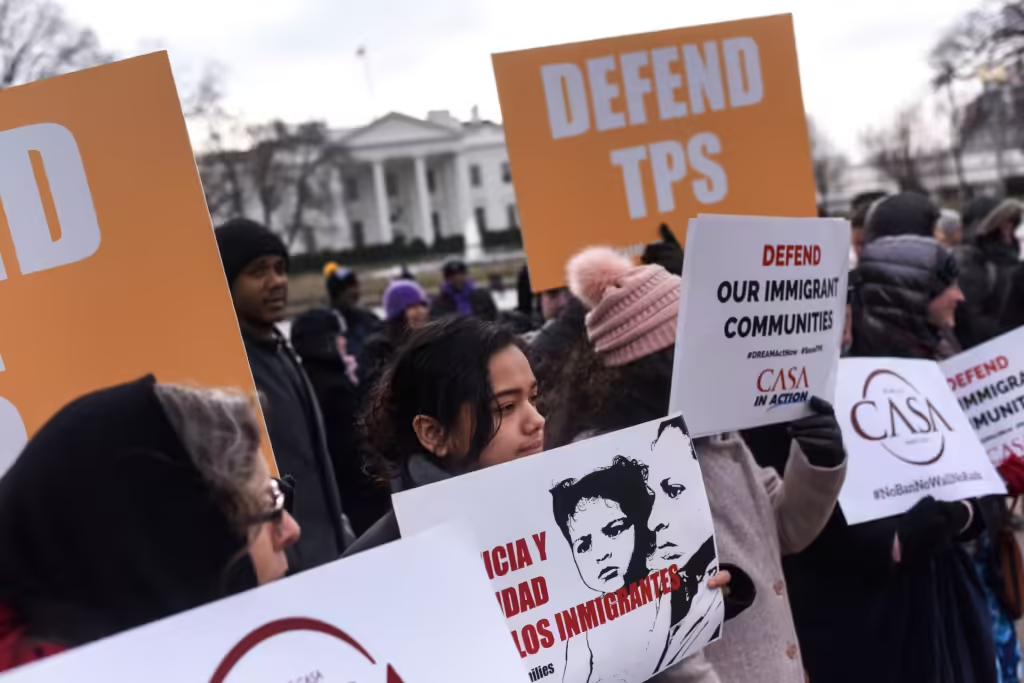
On January 10, 2025, President Joe Biden’s administration announced an 18-month extension of Temporary Protected Status (TPS) for immigrants from Venezuela, El Salvador, Ukraine, and Sudan. This critical decision affects nearly 1 million individuals, granting them the right to continue residing and working legally in the United States until mid-2026.
The extension comes at a pivotal time, offering a lifeline to thousands of families while also reflecting the administration’s broader immigration priorities.
Current Situation
The extension of TPS directly benefits around 600,000 Venezuelans, 232,000 Salvadorans, 103,000 Ukrainians, and 1,900 Sudanese nationals. These individuals have been granted TPS due to extraordinary circumstances in their home countries, such as ongoing armed conflicts, severe economic instability, or natural disasters that make safe return impossible.

This decision is particularly significant as it precedes the inauguration of President-elect Donald Trump, who has previously criticized TPS programs. Biden’s move provides much-needed security for beneficiaries while setting a marker for the administration’s commitment to humanitarian values in immigration policy.
Despite the extension, many immigrants remain in a state of uncertainty. Advocacy groups have emphasized the temporary nature of TPS and are calling for more permanent solutions to protect these individuals, who have contributed significantly to U.S. communities over the years.
Temporary Protected Status (TPS): A Brief Overview
Temporary Protected Status was established under the Immigration Act of 1990. It grants temporary relief from deportation to individuals from countries experiencing extraordinary conditions, such as:
- Armed conflict (e.g., civil wars)
- Natural disasters (e.g., earthquakes, hurricanes)
- Other severe crises that prevent safe return
While TPS allows recipients to live and work in the U.S. legally, it does not provide a pathway to permanent residency or citizenship. Beneficiaries must periodically reapply for the status and are subject to its renewal based on the administration’s assessment of conditions in their home countries.
Implications of the Extension
For Immigrants
For beneficiaries, the extension ensures continued legal status, enabling them to work, pay taxes, and support their families. Many TPS holders have lived in the U.S. for decades, building lives and contributing to their communities. However, the lack of a clear path to permanent residency leaves them vulnerable to changes in immigration policy.
For the U.S. Economy
TPS holders play an essential role in various industries, including healthcare, construction, agriculture, and hospitality. Their contributions bolster local economies, particularly in areas with high immigrant populations. Extending TPS ensures that these workers can continue to support sectors already facing labor shortages.
For U.S. Immigration Policy
The extension demonstrates the Biden administration’s focus on balancing humanitarian concerns with pragmatic immigration policies. However, it also highlights the limitations of TPS as a temporary solution, with critics arguing that it fails to address the root causes of migration or provide lasting stability for beneficiaries.

The Need for Permanent Solutions
While TPS offers immediate relief, its temporary nature underscores the need for comprehensive immigration reform. Many TPS holders have lived in the U.S. for years or even decades, establishing deep roots in their communities. Advocates argue that Congress must pass legislation that provides pathways to permanent residency for long-term TPS beneficiaries.

Several bills have been proposed in recent years to address this issue, including the DREAM Act and the American Promise Act, but progress has been slow. The upcoming political landscape will likely influence the fate of such measures, particularly with a new administration taking office.
Challenges Ahead
The Biden administration’s decision to extend TPS is expected to face legal and political challenges. Critics argue that TPS has been overused, becoming a de facto permanent program rather than the temporary relief it was intended to provide. The incoming Trump administration may seek to reverse these extensions or impose stricter criteria for future TPS designations.
Immigrants and advocacy groups are preparing for potential court battles to defend the extension. Additionally, beneficiaries are advised to explore other legal avenues to secure more stable immigration status, such as family-based petitions or asylum applications where applicable.
Community and Advocacy Responses

The extension has been met with widespread approval from immigrant rights organizations and Democratic lawmakers, who view it as a necessary step to protect vulnerable populations. Groups like the American Immigration Council and the National TPS Alliance have praised the decision while urging further action to address the long-term needs of TPS holders.
On the other hand, conservative lawmakers and groups critical of immigration have raised concerns about the impact of these extensions on the U.S. labor market and immigration enforcement. This divide highlights the ongoing debate over the role of temporary immigration programs in the broader context of U.S. immigration policy.
Economic and Social Contributions of TPS Holders
TPS recipients have made significant contributions to American society. According to a 2023 report by the Center for American Progress:
- Over 80% of TPS holders participate in the workforce.
- They pay an estimated $2.3 billion in taxes annually.
- Many are essential workers, with nearly 20% employed in healthcare and related sectors during the COVID-19 pandemic.
These statistics underscore the importance of TPS holders not only as individuals seeking refuge but also as integral contributors to the nation’s economy and well-being.
Conclusion
President Biden’s extension of Temporary Protected Status for nearly 1 million immigrants is a lifeline for individuals facing unimaginable challenges in their home countries. While this decision provides immediate relief, it also highlights the need for long-term solutions to address the complexities of immigration policy in the United States.
The future of TPS and its beneficiaries remains uncertain, particularly with an administration change on the horizon. However, this extension sends a clear message about the Biden administration’s commitment to protecting vulnerable populations and recognizing their contributions to American society.
For a deeper look into the impact of the recent TPS extension, watch this video:

1 thought on “Biden Extends Temporary Protection for Immigrants: Current Developments and Implications”